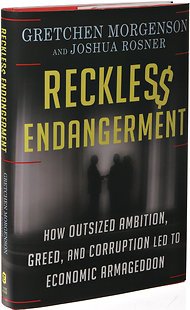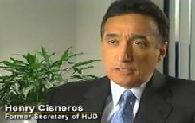Without admitting or denying wrongdoing, Mr. Mozilo agreed to be banned from serving as an officer or a director of a public company.
The conclusion by prosecutors that Mr. Mozilo, 72, did not engage in criminal conduct while directing Countrywide will likely fuel broad concerns that few high-level executives of financial companies are being held accountable for the actions that led to the financial crisis of 2008.
Hundreds of billions of dollars have been lost by investors while millions of borrowers have lost their homes. Few of the people who ran the institutions that contributed to the disaster have been found liable.
E-mails and other documents supplied to regulators in the S.E.C.’s case against Mr. Mozilo showed him discussing the company’s lending practices and describing some of its loans as “toxic†and “poison.†Nevertheless, the company kept selling the types of loans Mr. Mozilo was denigrating.
The person with knowledge of the probe insisted on anonymity because he was not authorized to speak publicly. The closing of the criminal case was first reported by The Los Angeles Times.
Even as criminal and civil prosecutors are closing investigations into financial executives, private litigation is swelling. Investors who purchased dubious mortgage securities are bringing a wide array of cases against mortgage lenders and the Wall Street firms that enabled them. These investors maintain, citing internal documents and e-mails, that those putting together mortgage securities knew that they contained problematic loans that would likely fail.
For example, a suit filed earlier this year against Bear Stearns by Ambac, an insurance company that guaranteed mortgage securities, cited an August 2008 e-mail from a former Countrywide executive. He explained to a friend that he had not recognized the financial cataclysm on the horizon because “we were having too much fun†processing risky mortgage instruments “and getting loaded on Miller Lite.â€
Mr. Mozilo, the son of a Bronx butcher, started Countrywide in 1969 with David Loeb, who died in 2003; together the men built the company into a mortgage lending giant with $11.4 billion in revenue at its peak in 2006.
In his years at Countrywide, Mr. Mozilo became one of the highest-paid executives in America. From 2000 until 2008, when he left, Mr. Mozilo received total compensation of $521.5 million, according to Equilar, a compensation research firm.
Mr. Mozilo made a rare court appearance last month in a wrongful dismissal case won by Michael G. Winston, a former Countrywide executive who said he was let go after questioning the company’s practices. Observers said Mr. Mozilo was combative and defiant early in his testimony, but later looked frail and had to grasp the railing as he left the witness stand.
“All of these senior people got huge payouts and left behind the carnage, which has hurt many hundreds of thousands,†said Ted Mathews, the lawyer who represented Mr. Winston in the case.
http://www.nytimes.com/2011/02/20/business/20mozilo.html?_r=1




